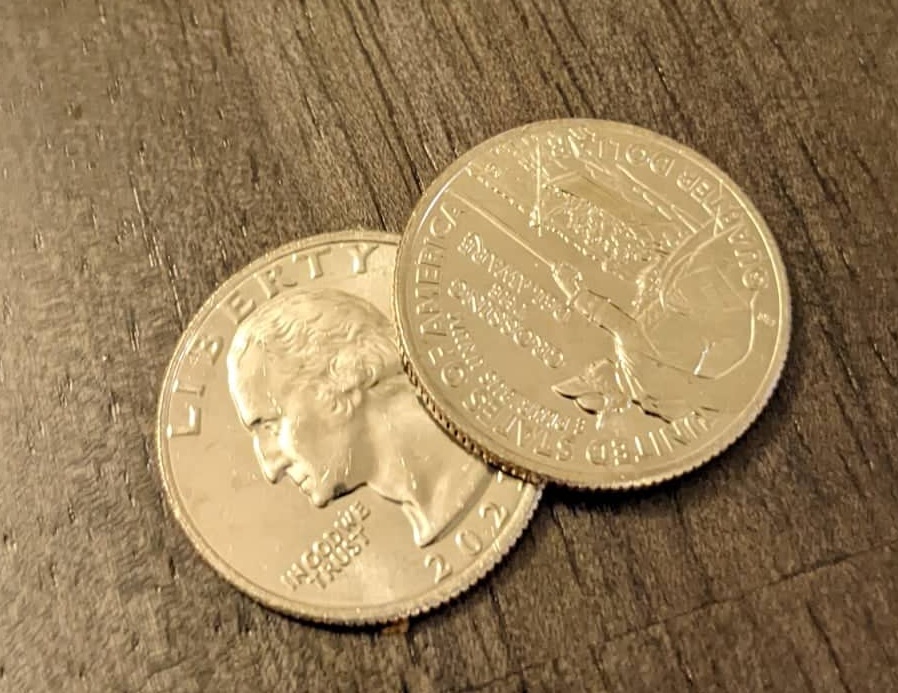Every coin has two sides. Properly preached, the gospel is no different. If one side of the good news coin is blessings, the flip side is reformation.
Luke 1-2 is the shiny blessings side of the coin. There, we learn of God’s promises to the people, of angels singing glad tidings and babies born to unlikely mothers. The tone is hopeful, like Isaiah 40:1, where God speaks comfort to the people.
Luke 3 turns the coin over. Blessings recede from view as the tone darkens. The voice of a rugged prophet echoes in the wilderness. Matthew portrays John the Baptist as a character more like Esau than Jacob. This is not a tent-dweller but an outdoorsman “clothed with camel’s hair around his waist, and his diet was locusts and wild honey” (Matthew 1:6). Some Jews of John’s day wondered if he was the reincarnation of a desert-dwelling Old Testament prophet like Elijah (Matthew 16:14).
Luke 3:18 sums up John’s preaching: “So with many other exhortations he preached the gospel to the people.”
What is this “good news” for John? It is a message of reform, both social and personal. It is repentance that produces the evidence of good fruit (3:8), a turning away from what is wrong and a firm commitment to do what is right.
Social reform
John’s preaching begins with a broad focus. The “salvation of God” (v. 6) shows up in dramatic ways. The “mountains” and “hills” being “lowered” (v. 5) echoes Mary’s song in Luke 1:52, where God “has brought down rulers from their thrones, and has exalted those who were humble.” God’s paths are straight paths (3:4). What is “crooked” must be made “straight.” (3:5). The LORD swings an axe that cuts down trees and throws them into the fire (3:9). Something is wrong on a broad scale, John insists, and social reform is overdue. Despite the apocalyptic images, David Neale cautions that this “reform” does not include rebelling against “the Empire” or “the corrupt Jerusalem temple aristocracy” (see Luke 1-9, in The New Beacon Bible Commentary, p. 96). Nonetheless, the image is of a message so powerful that nothing stands unchanged in its wake.
Personal reform
Reform on the societal level is accompanied by reform on the individual level. Cut to the heart by fiery preaching, the crowds anxiously respond to John: “Then what are we to do?” (3:10). To different groups in the crowd, John tailors a response:
To everyone: generosity — Do you own two shirts? Then give one to someone who has none. Likewise, food is for sharing, not discarding (3:13). The late Nazarene pastor Earl Lee spoke recommended “giving living.” Open hands make for open hearts, while hoarding betrays our lack of trust in God’s daily provision.
To tax collectors: integrity — Surprisingly, tax collectors were among those coming to be baptized. They asked the prophet: “Teacher, what are we to do?” John replied: “Collect no more than what you have been ordered to” (3:13). He did not tell them to quit working for the government as if government employ in itself was wrong. John was not against the payment of taxes, nor was Jesus (Matthew 22:21). However, tax collectors were only to require what Rome demanded and not line their own pockets.
To soldiers: upright conduct and contentment — Soldiers kept order, but this legitimate authority carried the illegitimate temptation to extort money (3:14). Policing powers are not given in order to enrich oneself. Abusiveness and repentance are antithetical. John the Baptist encouraged soldiers to be content with their pay.
Applications
The gospel is good news, yet the preaching of John the Baptist reminds us that there are two sides to the gospel coin. Besides the blessings of the Lord, there is also God’s requirement for social and personal reform. Repentance means forsaking sin, wherever it lurks, and cultivating practices demonstrating that where God reigns, darkness flees. Here are some things to consider as we relate John’s preaching to our own time.
- Christ transforms culture – In his 1951 Christ & Culture, H. Richard Niebuhr laid out ways that Christianity has traditionally related to society at large. One of the options is that Christ transforms culture. How well does the preaching of John the Baptist fit into that paradigm?
- Social and personal reform – While not advocating violent overthrow of Roman rule, there are unmistakable echoes of Old Testament prophecy in John’s preaching, an approach that underscored God’s concern for justice and the social reforms necessary for justice to be realized. Yet John’s message also called for personal reform as the evidence of individual repentance. Has the Church of the 21st century held these dual emphases together? What larger current justice movements have drawn participation from some churchgoers? How do you feel when you see churches asking for participation from its members to combat social wrongs?
- What are we to do? This is the question each group coming to John the Baptist to be baptized asked the prophet. As you’ve read Luke 3:7-20, what has the Holy Spirit been saying to you? What areas of your life and conduct is God asking your permission to reform?
_________
All Scripture quotations are from The New American Standard Bible (Lockman, 2020).


